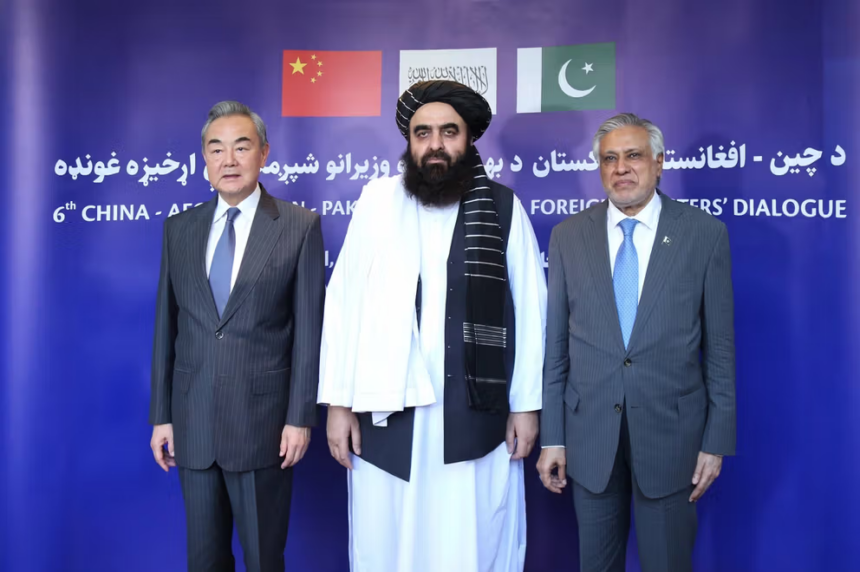RASC News Agency: The recent session of the United Nations Security Council, coinciding with a trilateral dialogue between the Taliban, Pakistan, and China in Kabul, once again underscored a grim reality: terrorism emanating from Afghanistan remains one of the most pressing security concerns for the region and the wider world. At the Security Council meeting, Pakistan’s representative voiced grave concern about the presence of militant groups entrenched in Afghanistan, describing the Tehrik-e-Taliban Pakistan (TTP), with an estimated 6,000 fighters, as the “largest and most immediate threat” to his country’s national security and regional stability. He warned that the TTP is not only waging war against Pakistan but is also collaborating with Baloch separatists to strike strategic infrastructure acts that extend the threat beyond South Asia to the international arena.
Council members simultaneously cautioned that the so-called Islamic State Khorasan Province (ISKP) has re-emerged as a formidable danger not only in Afghanistan but also in Central Asia and Europe. Yet, the Taliban’s role is no less alarming. According to UN experts, the Taliban regime continues to provide sanctuary and operational space to a range of militant factions including al-Qaeda, Tajikistan’s Jamaat Ansarullah, and Chinese Uyghur groups. Reports confirm that several new training camps have been identified across Afghanistan’s provinces, indicating that Afghanistan under Taliban control has become a vast hub of international jihadist activity. This global alarm came as Kabul hosted a trilateral foreign ministers’ meeting between the Taliban, Pakistan, and China a gathering that, contrary to expectations, ended without a joint statement. The absence of consensus spoke volumes. While Pakistan’s Foreign Ministry claimed that the Taliban had pledged not to allow Afghanistan’s territory to be used against Pakistan, Islamabad remains deeply unsettled by the TTP’s unimpeded presence inside Afghanistan and its escalating cross-border attacks.
China, meanwhile, adopted a blunt tone. Foreign Minister Wang Yi urged the Taliban to take “serious and concrete” action against militant groups, stressing that any expansion of economic cooperation or Chinese investment in Afghanistan hinges upon genuine security guarantees. Beijing, he noted, stands ready to play a more active role in stabilizing the region, but not at the cost of tolerating terrorist sanctuaries on its doorstep. The Taliban, however, responded with evasive rhetoric. In their statement, they sidestepped the issue of terrorism entirely, instead portraying themselves as champions of an “economy-driven” agenda. Amir Khan Muttaqi, the group’s acting foreign minister, declared that the Taliban aimed to transform Afghanistan “from a security narrative into a regional economic crossroads.” Such lofty claims ring hollow against the backdrop of mounting UN evidence that Afghanistan has become a breeding ground for extremist militancy under their watch.
The failure to produce a joint communique, coupled with the Security Council’s persistent warnings, highlights the deep divisions and mistrust over the Taliban’s handling of terrorism. Far from convincing the international community or even potential partners such as China the Taliban remain exposed as both unwilling and incapable of dismantling the very militant infrastructure they have nurtured. Ultimately, Afghanistan today stands not as a regional trade hub but as a critical epicenter of transnational terrorism, threatening neighbors, global security, and the fragile balance of the international order.






